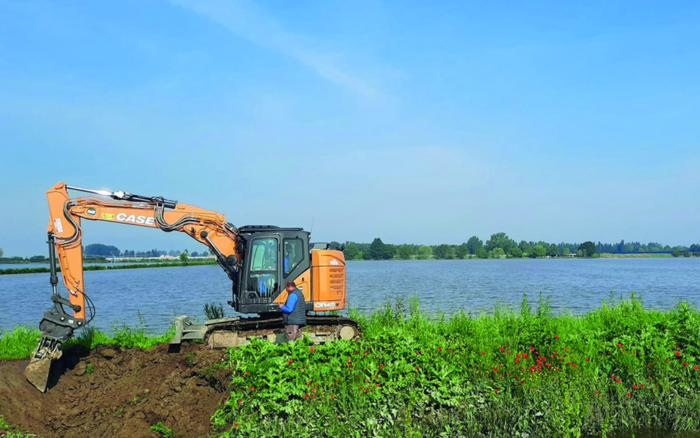Environmental remediation: an indispensable tool also in the prevention of hydrogeological risk.
20 Jul 2023 - Environment, Hydrogeological risk

Floods and adverse natural events remind us how essential it is to adopt preventive measures to protect our environment and the communities that inhabit it. In this context, environmental remediation plays a key role in preventing damage caused by soil exploitation and in restoring an environment that is not only healthy, but also geologically safe.
Environmental remediation represents a set of interventions aimed at restoring the natural balance of the environment after calamitous events or human activities that have compromised its integrity. The main objectives of the remediation are the removal and the treatment of the pollutants present in the soil and water, the soil stabilization to prevent landslides and settlements, and the retraining spaces for their correct use.
To face these challenges, it is essential to adopt values and good practices that guide environmental remediation towards effective and sustainable results. Icaro Ecology, with its extensive experience and expertise in the field of ecology and sustainable development, stands as a point of reference in promoting these values and practices.
One of the core values is the sustainability environmental. In the context of remediation, we are committed to using innovative methodologies and technologies that minimize the environmental impact and maximize the efficiency of remediation processes. This approach makes it possible to minimize the use of natural resources and the emission of greenhouse gases, thus contributing to the long-term protection of the environment and reducing the so-called waste tourism.
Another fundamental value for Icaro Ecology is the collaboration. We recognize that environmental remediation requires an integrated approach involving different actors, including public bodies, local authorities, industry professionals and local communities. It is necessary to promote dialogue and collaboration between these interested parties, so that the decisions and actions undertaken are shared, participatory and respond to the real needs of the territory. This includes the accurate assessment of the affected areas, the use of low environmental impact technologies and materials, the responsible management of the waste produced during the reclamation operations and the active involvement of local communities in the planning and implementation of the reclamation.
In conclusion, environmental remediation plays a vital role in preventing natural disasters and ensuring a safe and healthy environment for communities.
We are aware that the road to recovery will be long, but with close collaboration and a shared vision, the country will be able to overcome adversity and build a safer and more sustainable future.